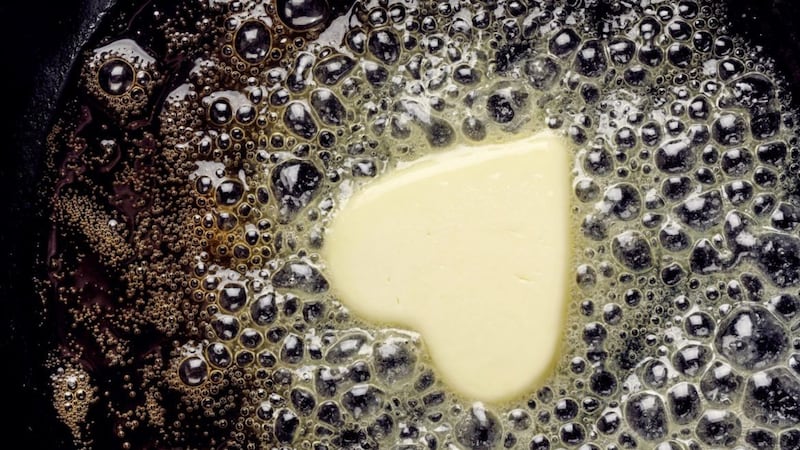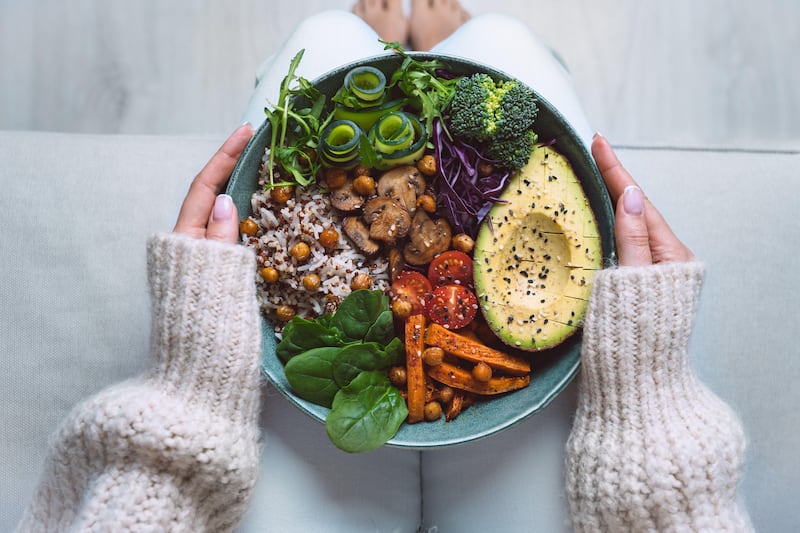SINCE the 1980s, fats and oils have had a bad reputation among dieters and anyone concerned with their heath and wellbeing. Low-fat diets have driven the food industry for decades, and along with this comes a fear and confusion about what fats or oils to have in our kitchen.
It is important to remember that fat is an essential nutrient, rather than something bad or dangerous. We cannot thrive or survive without the stuff. It provides us with essential omega 3 and omega 6, fat soluble vitamins A, D, E and K. Having enough of the right type of fat in our diet helps balance inflammation in the body, leaves us feeling satiated by the food we eat (and reduces cravings for more), supports a healthy metabolism and balances our hunger hormones. Every single cell in our body needs fat.
Unfortunately most of the low-fat spreads and sprays are highly processed and refined vegetable oils and trans-fats cleverly marketed to look like health food. These types of fat are more likely to contribute to inflammation, ill health and disease.
Take a closer look at the label and you will find a list of ingredients like this:
Sunflower Oil (51 per cent), Water, Alcohol, Emulsifier: Sunflower Lecithin, Natural Flavouring, Thickener: Xanthan Gum.
When it comes to choosing the best oils to cook with, here are my top choices and the reasons why I like them:
1. Extra Virgin Olive Oil:
Olive oil is a key ingredient in the Mediterranean diet, renowned for its health benefits, for everything from heart health and brain function to immune benefits.
Extra virgin olive oil is the first extraction from the olive, done without any heat or chemicals that destroy the integrity of the oil.
It can be heated up to moderately high temperatures without causing any damage, but it is also a great base for dressings and drizzles over salads and vegetables.
2. Butter:
If you are looking for a good quality fat to include in your diet, you can’t go past good-quality organic butter for health benefits or for taste.
Butter is always my preference over low-fat spreads and highly processed margarines.
Studies have shown that butter made from cows that have been grass-fed is a richer source of Vitamin A, omega-3 fatty acids, and up to 500 per cent more conjugated linoleic acid (CLA) – linked to promising anti-cancer effects as well as showing an impact of insulin levels and body fat composition.
It is still a concentrated source of fats and calories, so don’t go crazy with it, but in moderation it's fine.
3. Coconut Oil:
Coconut oil is a saturated fat with health benefits. It is a good source of a healthy saturated fat called lauric acid which can help rebalance cholesterol, improving the balance of HDL and LDL levels. Coconut oil has also been shown to have fat-burning effects. When it comes to cooking, coconut oil can be heated to high temperature without any oxidative damage to the fat, making it a good store cupboard essential. I love using it for curries and Asian-style recipes.
4. Ghee:
Ghee is a form of clarified butter that is made by melting butter to remove the milk solids. This makes it suitable for some people with a dairy intolerance. Ghee can safely be heated to high temperatures without causing any damage to the fat, and it will store at room temperature for up to a year.
Back to basics:
Fats and oils are an important part of a healthy, balanced diet. When it seems to making the right choices, start with the basics. Switching out your one-cal spray to olive oil, or swapping your margarine to real butter is a set in the right direction.








